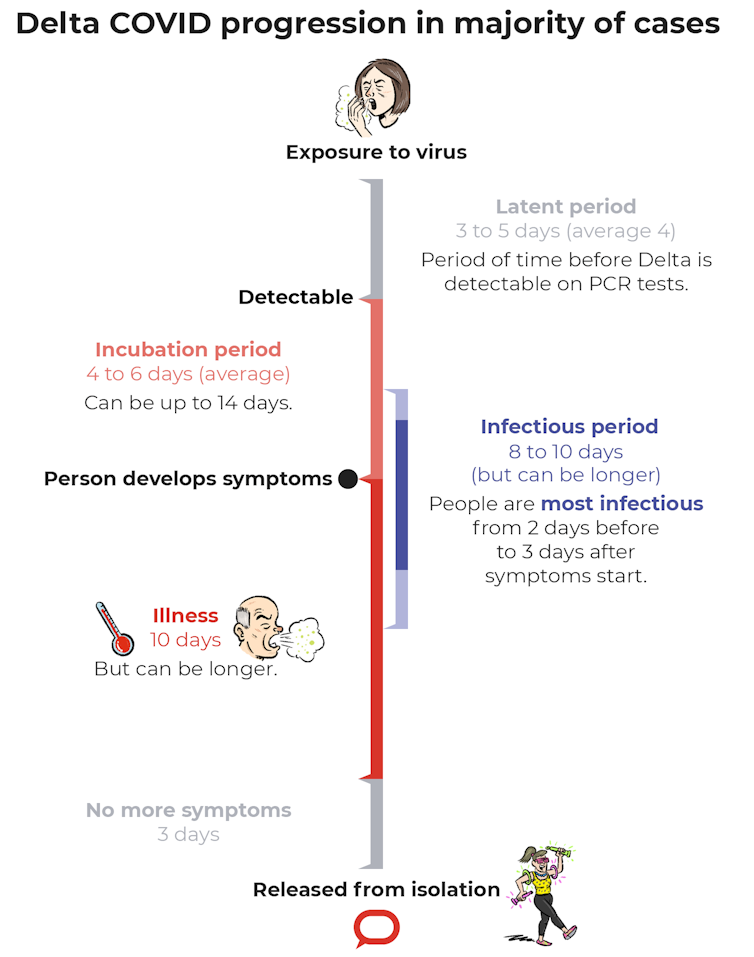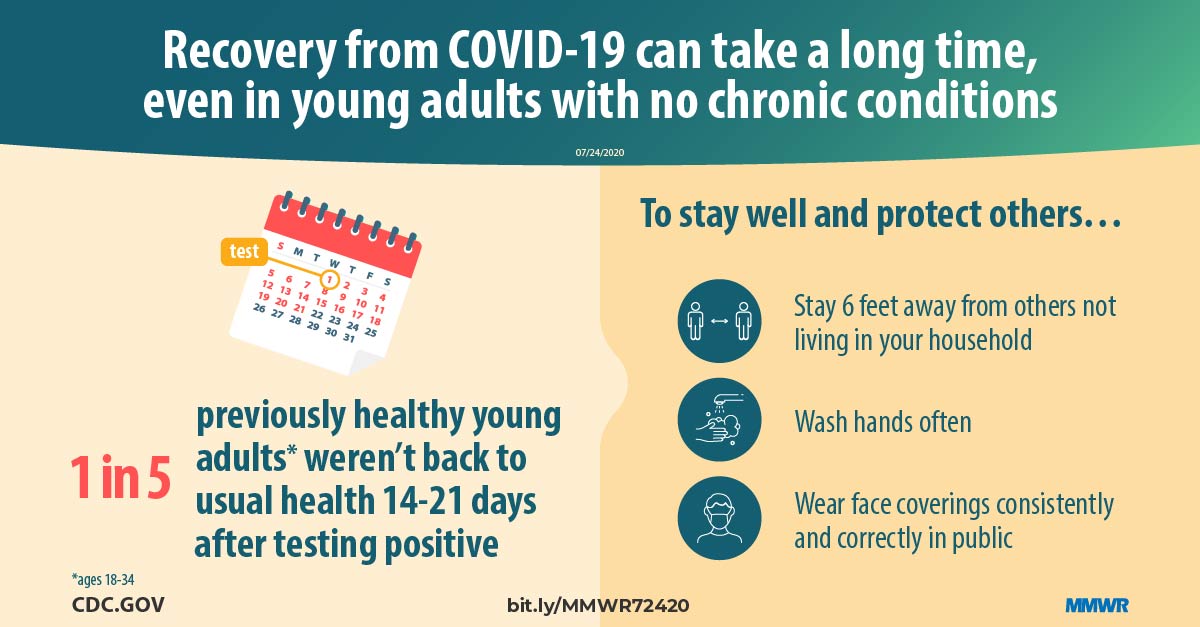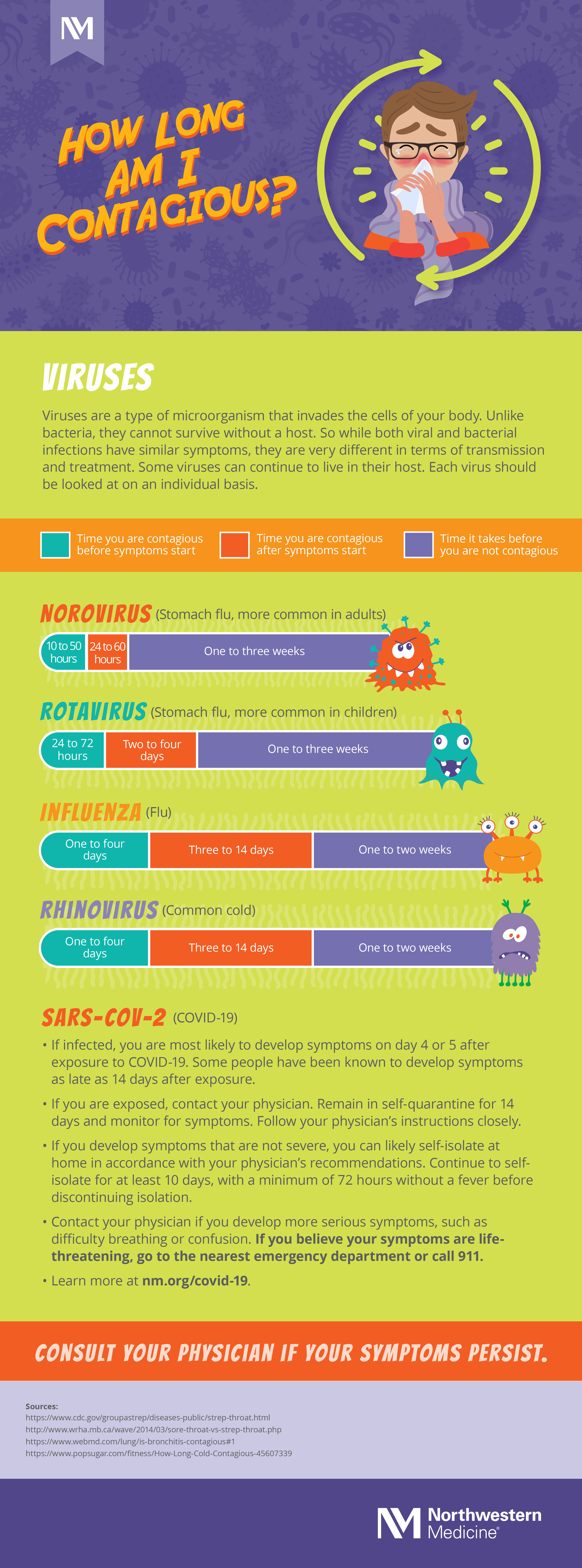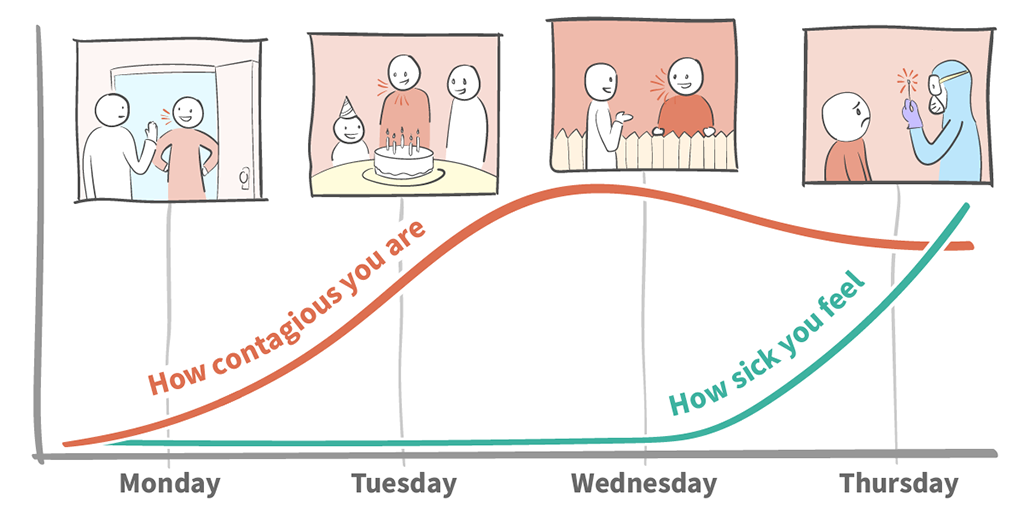How Long Is Someone Infectious After Testing Positive For Covid 19
On the other hand research suggests that people who are infected with SARS-CoV-2 the virus that causes COVID-19 are at their most contagious in the 24 to 48 hours before they experience symptoms. Unvaccinated adults must continue to self-isolate for 10 days if they are a contact of someone with COVID and anyone who tests positive or develops symptoms will need to self-isolate.

How Contagious Is Delta How Long Are You Infectious Is It More Deadly A Quick Guide To The Latest Science
The infectious period only starts a few days after being exposed to the.

How long is someone infectious after testing positive for covid 19. But you would still expect there to be a few days between the time a person is exposed and infected and the time they begin actively shedding virus. Those who start displaying symptoms of Covid-19 and test positive for the virus are thought to be contagious for at least seven days from the onset. With cold symptoms it is better to wait for a PCR result rather than risk spreading the virus Last modified on Mon 13 Dec 2021 1554 EST You wake up with a pounding head sore throat.
Those who test positive but do not have any symptoms should isolate for 10 days after their initial positive test result. If you have COVID-19 symptoms. New studies have suggested that people are the most infectious in the 48 hours before they start to experience any symptoms.
Are unlikely to become infected with COVID-19 again will not need to be retested unless you develop symptoms of COVID-19. If that third-day test is positive. Some people will continue to test positive for COVID-19 and while this could indicate theyre still able to transmit the virus others who test positive may just have nonviable viral remains in.
The most infectious period is thought to be 1 to 3 days before symptoms start and in the first 7 days after symptoms begin. For some people COVID-19 symptoms persist for several weeks. How long to self-isolate - Coronavirus COVID-19 - NHS How long to self-isolate You usually have to self-isolate for 10 full days if youve tested positive for coronavirus COVID-19.
Double-jabbed people identified as a contact of someone with Covid-19 in England will be told to take a daily rapid test for seven days from Tuesday health officials said. What does recovery mean. If youve been in close contact with someone who has COVID-19 you may have to self-isolate for 10 full days.
People who test positive for COVID-19 but do not develop symptoms in the 10 days following the test result are considered to be likely no longer contagious after those 10 days. A CDC report published in July found that 35 of people who tested positive and had symptoms said they had not reverted back to their. The CDC advises that a person with a positive test who has symptoms can be around others 10 days after the symptoms first appeared as long as they have been fever.
Taking an LFD test before meeting with others can help to. In fact right before developing symptoms is when people are likely the most contagious. Provisional research from Germany has suggested that COVID-19 infectiousness in contrast to the 2003 SARS outbreak peaks early and that recovering patients with mild symptoms become low-risk around 10 days after they first fall ill.
If youve been sick with COVID-19 whether your illness was confirmed by testing or symptom-based criteria the CDC recommends that you remain isolated for at least 10 days since symptom onset and up to 20 days in cases of severe illness. Probably to some extent though the first batch of studies is far from conclusive as to how long it lasts. He said that 90 per cent of Covid-19 cases in the companys 49 different hospitals were considered incidental meaning that patients had come in.
But weve known for many months that the COVID-19 vaccines train immune cells to. Fully vaccinated people in England who are close contacts of Covid cases will be told to take daily lateral flow tests for seven days from. During the 9 months you.
This advice applies until 10 full days after your most recent contact with the person who has tested positive for COVID-19. Infectious disease expert Amesh A. These results suggest that shedding may occur for longer than 2 weeks in some people with COVID-19.
People will be contacted by NHS Test and Trace or via the NHS COVID-19. Daily testing for anyone double-jabbed who comes into contact with a COVID-19 case will start from Tuesday. How long are you contagious for with coronavirus.
You are likely to be immune protected for at least 9 months after a COVID-19 infection. Studies have shown that people may be contagious for about two days before developing COVID-19 symptoms. At 152 days the odds of continuing to shed the virus were less than 5.
Based on what is. However the study. Adalja MD senior scholar at the Johns Hopkins Center for Health Security in Maryland tells Health that someone who has had COVID-19.
But some people may remain infectious for longer. People with COVID-19 appear to be most infectious two days before to three days after symptoms start though its unclear whether this. Being tested positive however doesnt mean the infected person is contagious.

How Long Am I Contagious Infographic Northwestern Medicine

How Long Before Symptom Onset Is A Person Contagious Mit Medical

What To Do If You Test Positive For Covid 19 Vermont Department Of Health

Symptom Duration And Risk Factors For Delayed Return To Usual Health Among Outpatients With Covid 19 In A Multistate Health Care Systems Network United States March June 2020 Mmwr
Posting Komentar untuk "How Long Is Someone Infectious After Testing Positive For Covid 19"